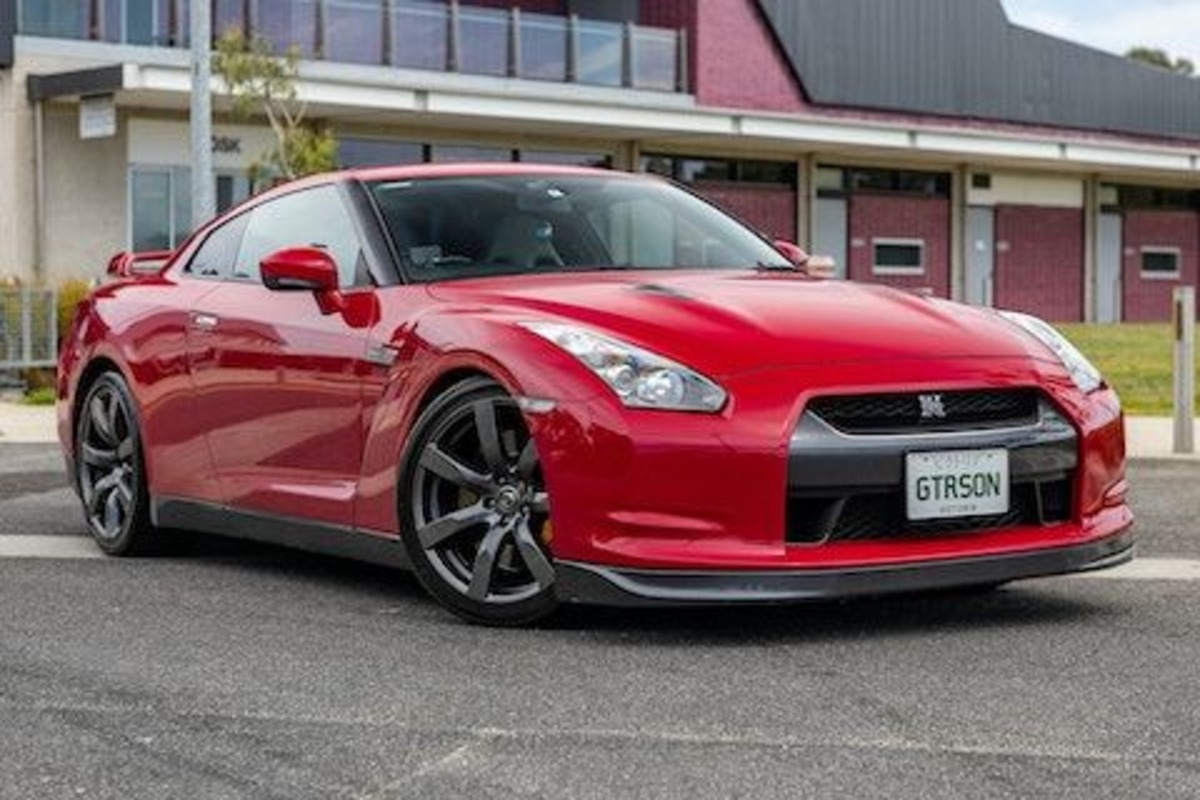Speed is often the ultimate measure of a car’s performance, and for many enthusiasts, the thrill of going fast is the reason behind their choice of vehicle. However, speed alone doesn’t define the best performance cars. There are other vital factors to consider, especially for those who regularly push their cars to their limits.
Reliability and durability are paramount when a car is taken to high speeds, whether on the track or the open road. Cars that can sustain high-performance levels without suffering breakdowns or component failures are crucial for both safety and enjoyment.
Unfortunately, not all fast cars are designed with longevity in mind, and some high-performance vehicles are notorious for breaking down when subjected to the extreme stresses of high-speed driving. The engineering that goes into these vehicles isn’t always as robust as it should be, leaving certain components vulnerable to wear and tear.
On the other hand, there are fast cars that are designed for both speed and reliability, built with quality materials, advanced engineering, and meticulous attention to detail to ensure they hold up under duress.
In this article, we’ll take a deep dive into five cars that are known for their durability and ability to handle high-speed driving without breaking down. We’ll also look at five cars that, while incredibly fast, tend to suffer breakdowns when pushed beyond their limits.
Understanding the difference can help you make an informed decision when choosing a high-performance car that delivers both speed and reliability.
Also Read: 6 Reliable City Cars and 6 That Aren’t Made for Stop-and-Go
5 Fast Cars That Don’t Break
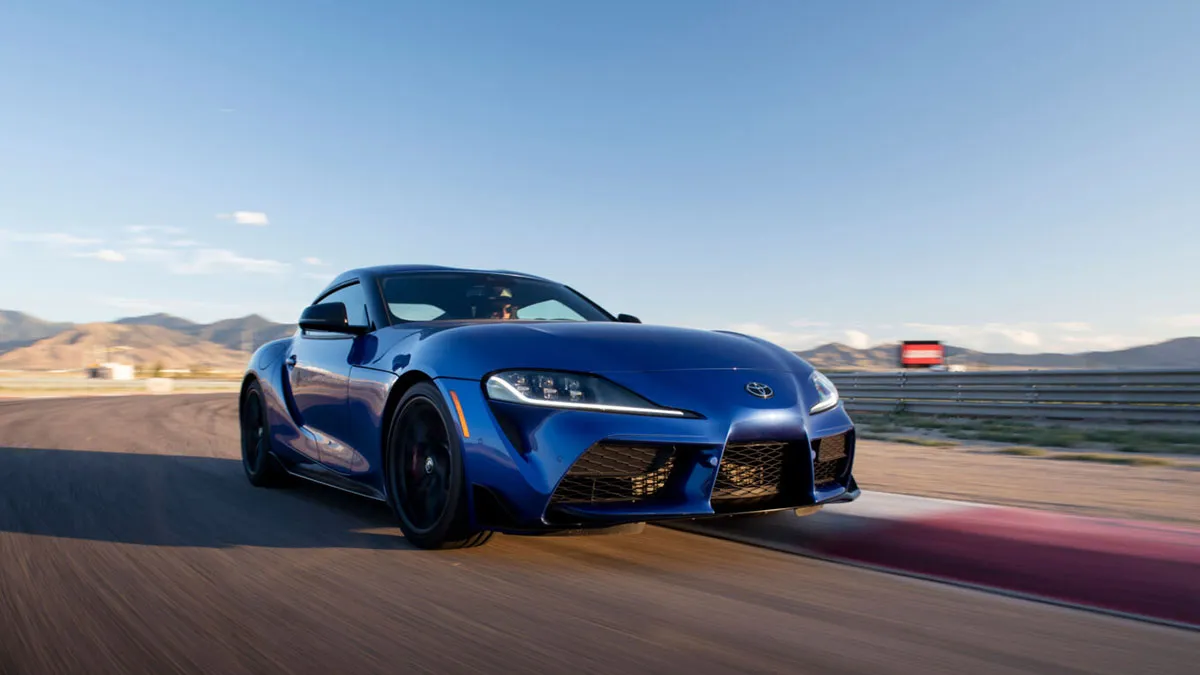
1. Toyota Supra MK5 (A90)
The Toyota Supra MK5 is one of the most reliable high-performance cars on the market today. Reviving a legendary nameplate, Toyota created the A90 Supra with an emphasis on power, handling, and, most importantly, durability.
Equipped with a 3.0-liter turbocharged inline-six engine, the Supra boasts 335 horsepower and can reach 60 mph in just over 4 seconds.
What sets the Supra apart from many other performance cars is Toyota’s reputation for building cars that are dependable for the long term. Unlike some sports cars that might need frequent maintenance or suffer from component failures under stress, the Supra has proven to withstand aggressive driving without major breakdowns.
The Supra is built with precision and care, focusing on reliability in its core engineering. The BMW-derived engine offers a great balance between performance and longevity, and the vehicle’s solid chassis ensures stability during high-speed runs.
Toyota’s engineering team has worked tirelessly to ensure that the Supra doesn’t just perform well on the track but can also endure the rigors of high-speed driving over time. While other sports cars might require constant attention, the Supra remains a relatively low-maintenance choice that will hold up during spirited driving.
This car’s track record of reliability is reinforced by its extensive testing and rigorous quality control. Toyota has always emphasized durability, and the Supra is no exception. Owners of the MK5 Supra often report fewer issues compared to competitors in its class, and the experience with this car is one of long-lasting satisfaction.
Whether you’re looking for a weekend thrill or a vehicle that can withstand frequent track days, the Toyota Supra MK5 is one of the most reliable choices for speed enthusiasts.
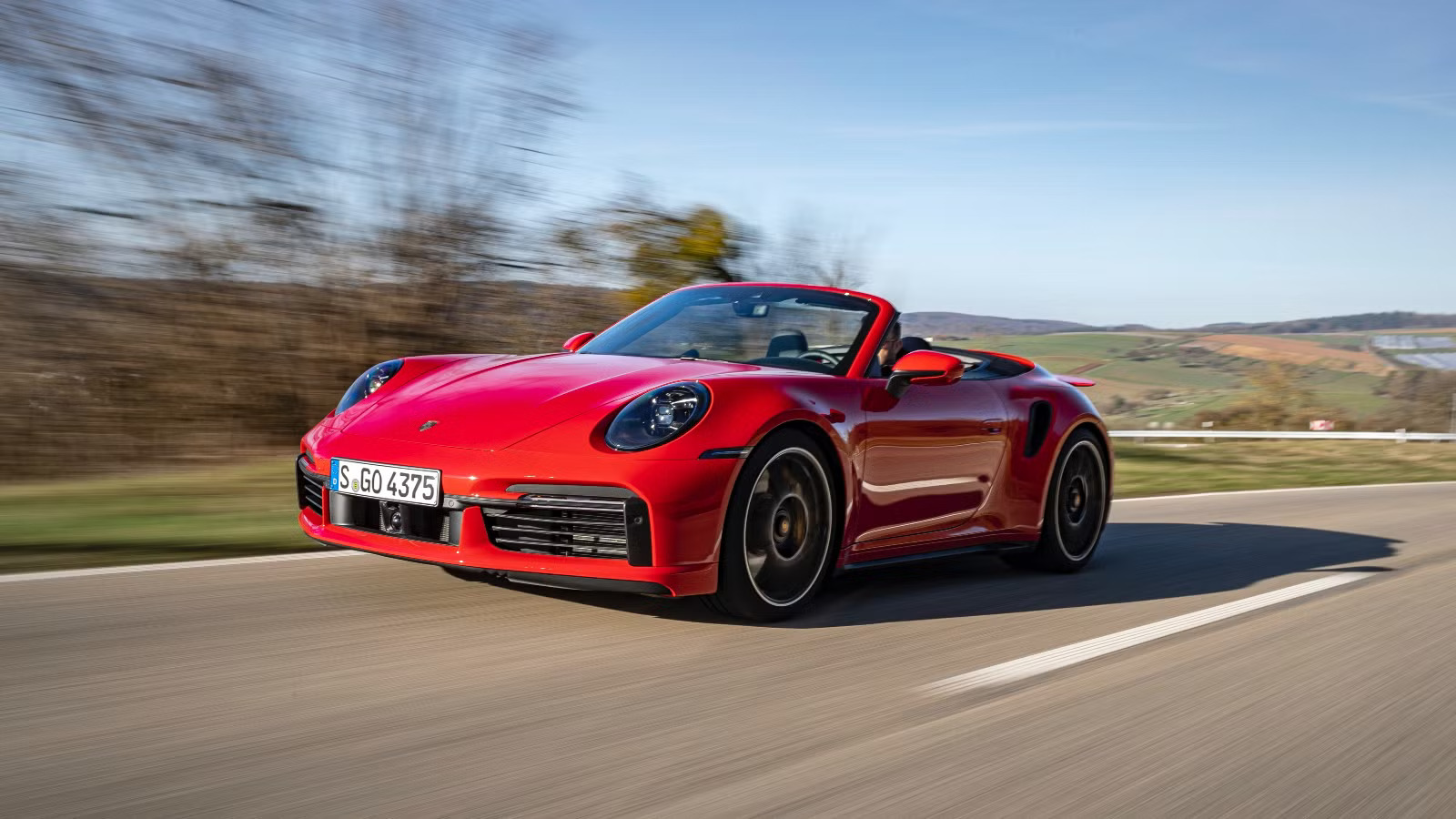
2. Porsche 911 Turbo S
The Porsche 911 Turbo S is a high-performance car that consistently delivers outstanding performance without compromising reliability. Powered by a 3.8-liter twin-turbocharged flat-six engine, the 911 Turbo S generates an impressive 640 horsepower, which allows it to accelerate from 0 to 60 mph in just 2.7 seconds.
While its acceleration and top speed are nothing short of exhilarating, the 911 Turbo S is also one of the most reliable fast cars available today. Porsche’s reputation for engineering vehicles that combine performance with durability is evident in the 911 Turbo S, which can handle aggressive driving without breaking down under stress.
What makes the 911 Turbo S particularly dependable is its advanced cooling systems, robust suspension, and structural integrity. Porsche’s meticulous attention to detail in building a car that can withstand high-speed driving is apparent in every aspect of the Turbo S.
The car’s active aerodynamics, all-wheel drive, and carbon-ceramic brakes all work together to provide not only speed but also stability and control, even at high velocities. The result is a car that delivers on its performance promises without sacrificing reliability.
In addition to the engineering excellence that goes into each 911 Turbo S, Porsche has a long track record of producing cars that remain dependable even with years of high-performance use. Owners of the 911 often report minimal issues, even when subjected to aggressive driving or frequent track days.
The combination of precision engineering, advanced systems, and long-term reliability makes the Porsche 911 Turbo S an exceptional choice for anyone who wants a fast car that doesn’t break down under pressure.
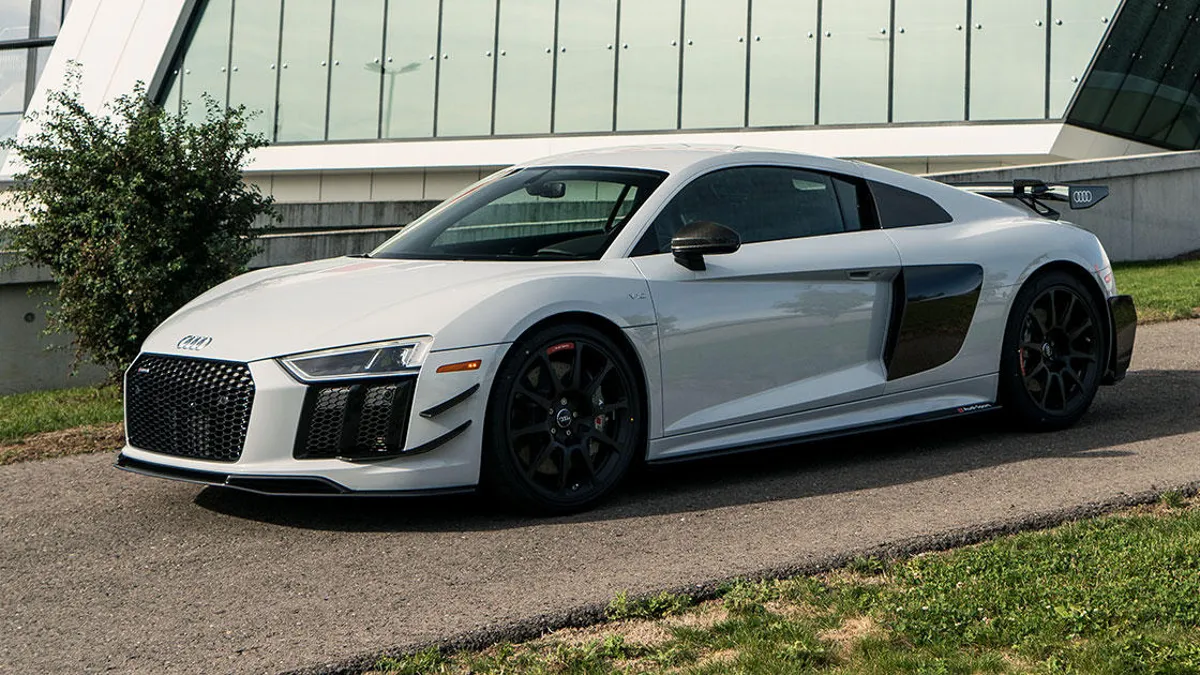
3. Audi R8 V10 Plus
The Audi R8 V10 Plus is a supercar that delivers an outstanding balance of performance, handling, and reliability. Powered by a 5.2-liter V10 engine producing 610 horsepower, the R8 V10 Plus accelerates from 0 to 60 mph in just 3.2 seconds. Despite its immense power and blistering speed, the R8 is known for its reliability, even when driven hard.
Audi’s commitment to quality and durability is evident in the R8’s engineering, which has been designed to handle high-speed driving without succumbing to the common mechanical issues that plague other exotic cars.
Audi’s Quattro all-wheel-drive system, combined with a lightweight aluminum chassis, makes the R8 a stable and capable car even when driven at the limits of its performance.
The car’s advanced suspension system and dynamic steering ensure that it maintains its composure during aggressive cornering and high-speed straights. These systems not only enhance driving dynamics but also contribute to the car’s durability, ensuring that the R8 can handle intense driving without suffering from premature component failure.
Owners of the Audi R8 often report that the car is incredibly reliable, even with frequent use on the track. The R8 is equipped with an effective cooling system, which ensures that its powerful V10 engine remains at optimal temperatures even during prolonged high-speed runs.
This, combined with Audi’s precision engineering and attention to detail, makes the R8 V10 Plus a fast car that doesn’t break down under pressure, offering both performance and peace of mind for those who drive it to the limits.
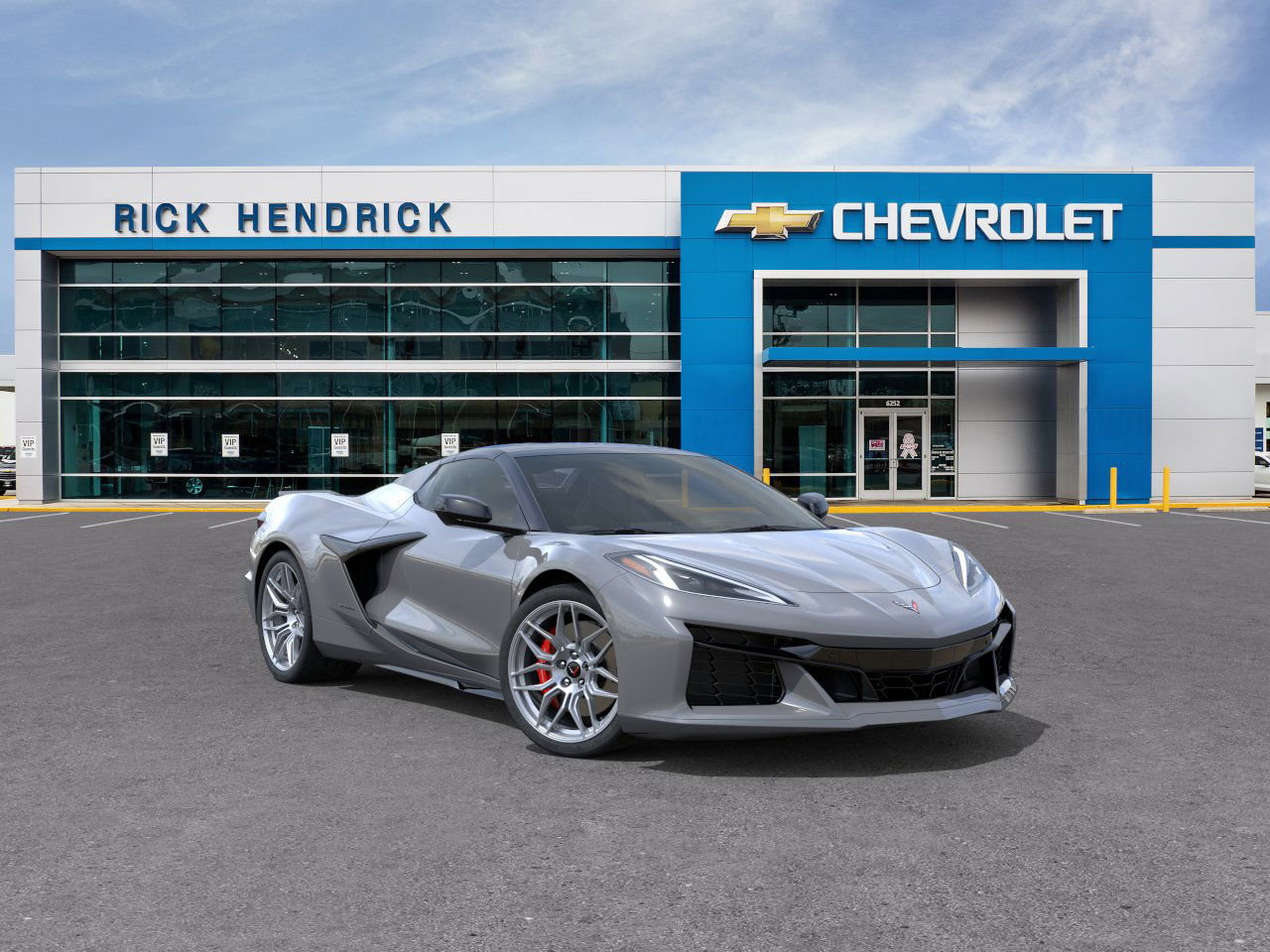
4. Chevrolet Corvette Z06 (C7)
The Chevrolet Corvette Z06 (C7) is an American muscle car that delivers exhilarating performance without compromising reliability. With a supercharged 6.2-liter V8 engine producing 650 horsepower, the Corvette Z06 can rocket from 0 to 60 mph in just 2.95 seconds.
Despite its aggressive power and thrilling acceleration, the Z06 is known for its ability to handle the stresses of high-speed driving without breaking down. Chevrolet has engineered the Z06 to be a durable performer, with a focus on quality materials and advanced technology to ensure it remains reliable under intense driving conditions.
One of the key features that contributes to the Z06’s reliability is its advanced suspension system, which is designed to provide excellent handling and stability at high speeds. The car’s lightweight carbon fiber body not only enhances performance but also ensures that it can withstand the rigors of high-speed driving.
Additionally, the Z06’s cooling system is designed to keep the engine at optimal temperatures even when pushed to its limits, preventing overheating and mechanical failure. The combination of these engineering features makes the Z06 a fast car that can handle extended periods of high-speed driving without compromising reliability.
Chevrolet has built the Corvette Z06 with the knowledge that owners will want to push it to its limits, whether on the track or the open road. As a result, the Z06 is engineered to maintain its performance and reliability over time.
Owners of the Corvette Z06 often report that the car remains dependable even after years of aggressive driving, making it a great choice for those who want both speed and durability in their sports car.
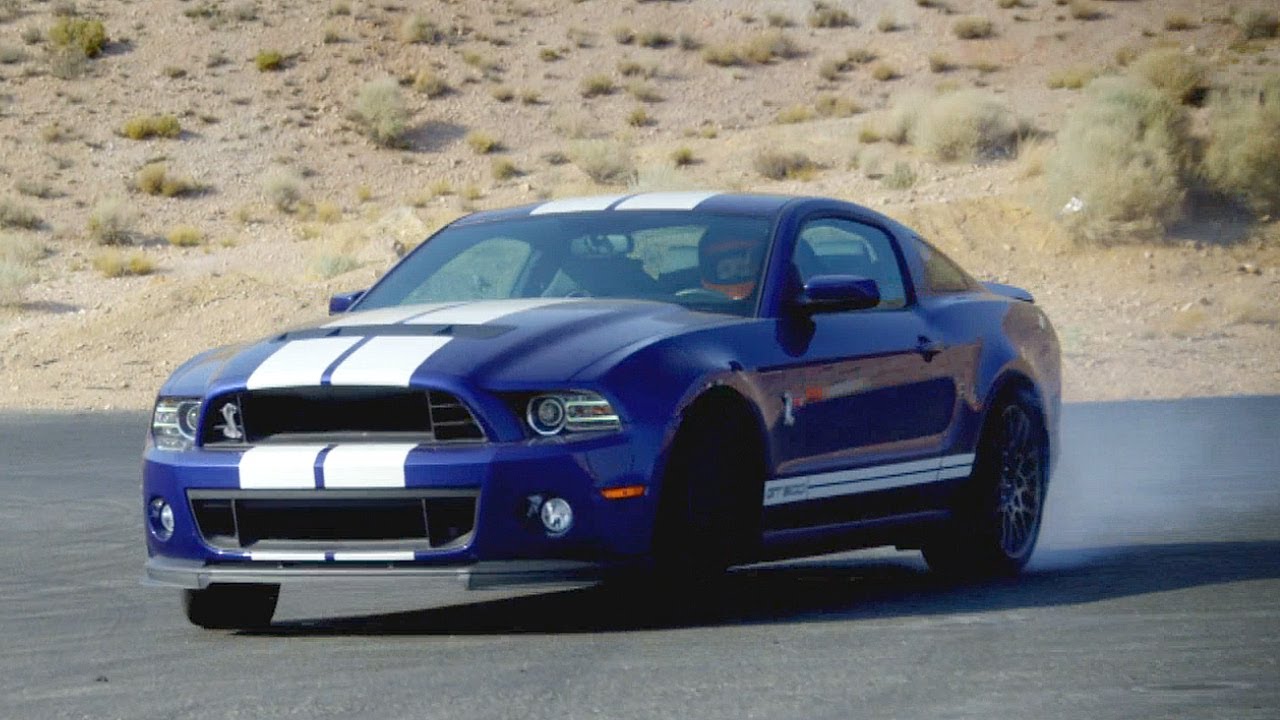
5. Ford Mustang Shelby GT500
The Ford Mustang Shelby GT500 is a high-performance muscle car that combines power, speed, and reliability. Powered by a supercharged 5.2-liter V8 engine generating 760 horsepower, the Shelby GT500 can accelerate from 0 to 60 mph in just 3.3 seconds.
While many performance cars struggle with reliability under high-speed conditions, the Shelby GT500 is built to withstand the demands of aggressive driving. Its robust construction, advanced suspension system, and high-performance cooling system ensure that it remains dependable even when driven at its limits.
Ford has designed the Shelby GT500 to offer both performance and longevity. The car’s suspension system, engineered for precise handling and stability, keeps the vehicle composed during high-speed maneuvers.
The advanced cooling system ensures that the supercharged engine stays within optimal operating temperatures, even during long, high-speed runs. These features contribute to the GT500’s reputation for reliability, making it a solid choice for those who want a fast car that can endure aggressive driving without breaking down.
The Shelby GT500’s durability extends beyond its mechanical components. Its construction with high-quality materials, including reinforced body panels and a lightweight chassis, ensures that the car can handle the stresses of high-speed driving without suffering from premature wear and tear. For muscle car enthusiasts who want both power and reliability, the Shelby GT500 stands out as a top choice.
5 Fast Cars That Break While Speeding
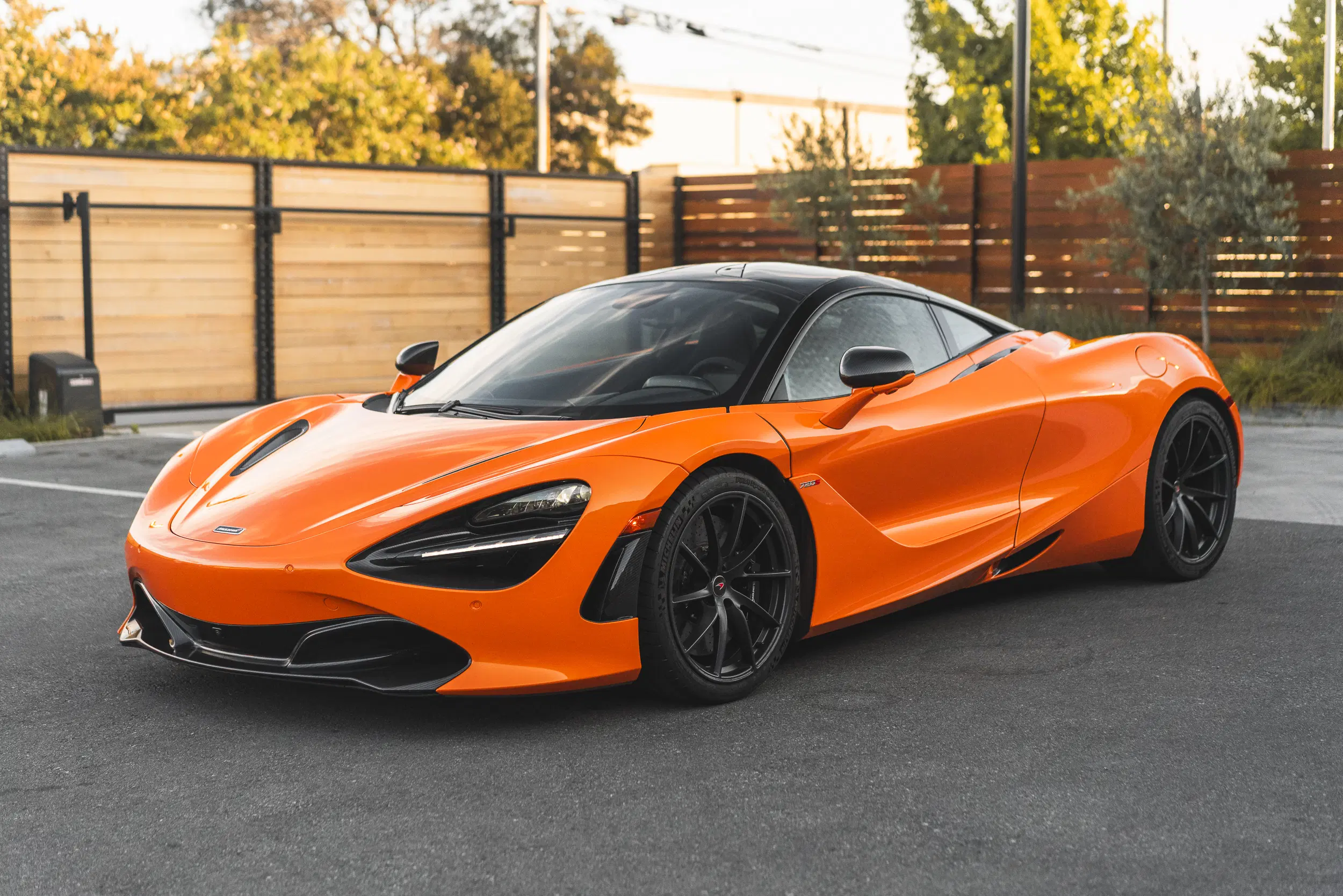
1. McLaren 720S
The McLaren 720S is a supercar that offers incredible performance, but its high-strung nature makes it prone to breakdowns when pushed to its limits. Powered by a 4.0-liter twin-turbo V8 engine producing 710 horsepower, the 720S can reach 60 mph in just 2.7 seconds.
However, despite its blistering speed, the 720S has a reputation for being temperamental. Issues such as overheating, electrical failures, and cooling system malfunctions have been reported by owners who push the car hard, especially during prolonged high-speed driving.
One of the key challenges with the McLaren 720S is its lightweight construction, which, while improving performance, can result in less durability under extreme driving conditions.
The car’s advanced cooling system, although efficient in normal conditions, sometimes struggles to handle the heat generated by the high-performance engine when driven at sustained high speeds.
This can lead to engine overheating and, in some cases, engine failure. Furthermore, the car’s complex electronics and transmission can experience issues under the stress of aggressive driving.
In addition, while McLaren’s build quality is generally top-tier, the 720S has experienced reliability issues, particularly when it comes to the transmission and engine components.
While it remains an exceptional car for those seeking performance, the 720S’s tendency to break down under high-speed driving makes it less reliable than some of its competitors in the supercar world.
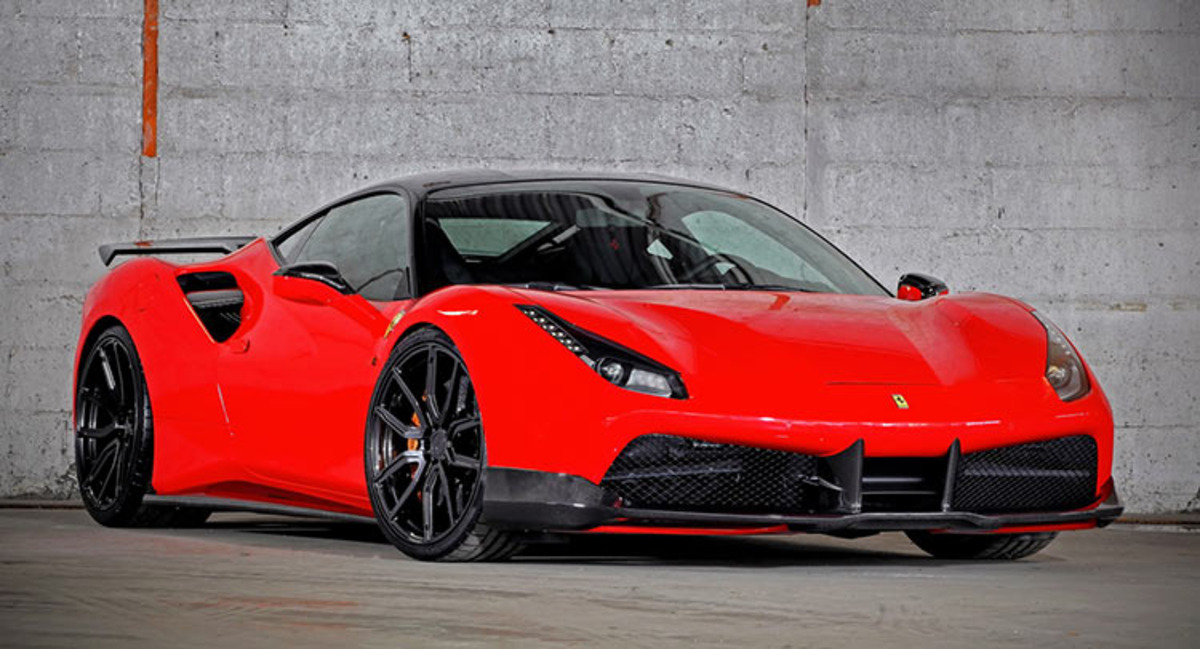
2. Ferrari 488 GTB
The Ferrari 488 GTB is a stunningly fast supercar, but like many high-performance vehicles, it has its share of reliability issues when driven aggressively.
Powered by a 3.9-liter twin-turbo V8 engine producing 661 horsepower, the 488 GTB can reach 60 mph in just 3 seconds. However, the car’s performance, while extraordinary, can lead to breakdowns if it is pushed too hard, especially during high-speed runs or track days.
One of the major reliability issues with the 488 GTB is its engine cooling system, which can struggle to maintain optimal temperatures during extended high-speed driving. Overheating is a common problem, especially when the car is subjected to the heat generated by its twin-turbocharged engine.
Additionally, the car’s complex transmission and electronics can fail under the stress of aggressive driving, causing the car to break down unexpectedly.
Despite its incredible performance, the Ferrari 488 GTB is not always the most reliable car when it comes to high-speed driving. Owners have reported issues with overheating, transmission failure, and electronic malfunctions, making it less suitable for those who want a supercar that can handle sustained high-speed driving without breakdowns.
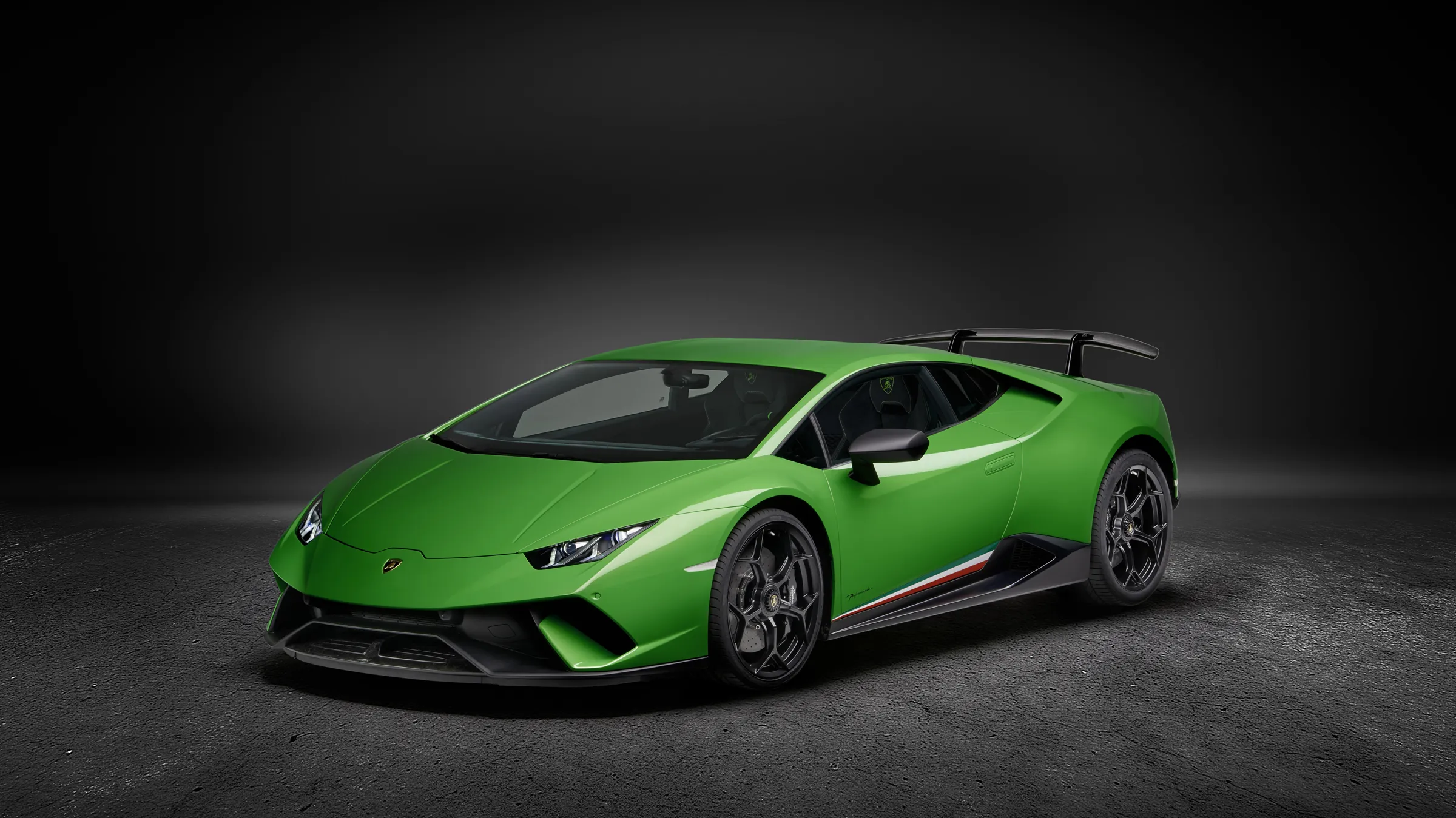
3. Lamborghini Huracán Performante
The Lamborghini Huracán Performante is another high-performance car that is known for its acceleration and track capabilities, but it can be prone to breakdowns when driven aggressively.
Powered by a 5.2-liter V10 engine producing 631 horsepower, the Huracán Performante can reach 60 mph in just 2.9 seconds. However, despite its exceptional performance, the car is known to experience reliability issues when subjected to prolonged high-speed runs.
One of the primary issues with the Huracán Performante is its complex drivetrain, which can struggle under the stresses of high-speed driving. The car’s advanced suspension system and aerodynamics, while excellent for cornering, sometimes can’t keep up during extreme high-speed maneuvers, leading to mechanical failures.
Additionally, the car’s cooling system, while sufficient in normal driving conditions, can fail during intense driving, leading to overheating and potential engine damage.
Lamborghini’s engineering focus on lightweight materials and extreme performance can sometimes result in compromised durability. As a result, the Huracán Performante, while incredibly fast, can experience breakdowns when pushed beyond its limits, making it less reliable than some of its competitors in the supercar market.
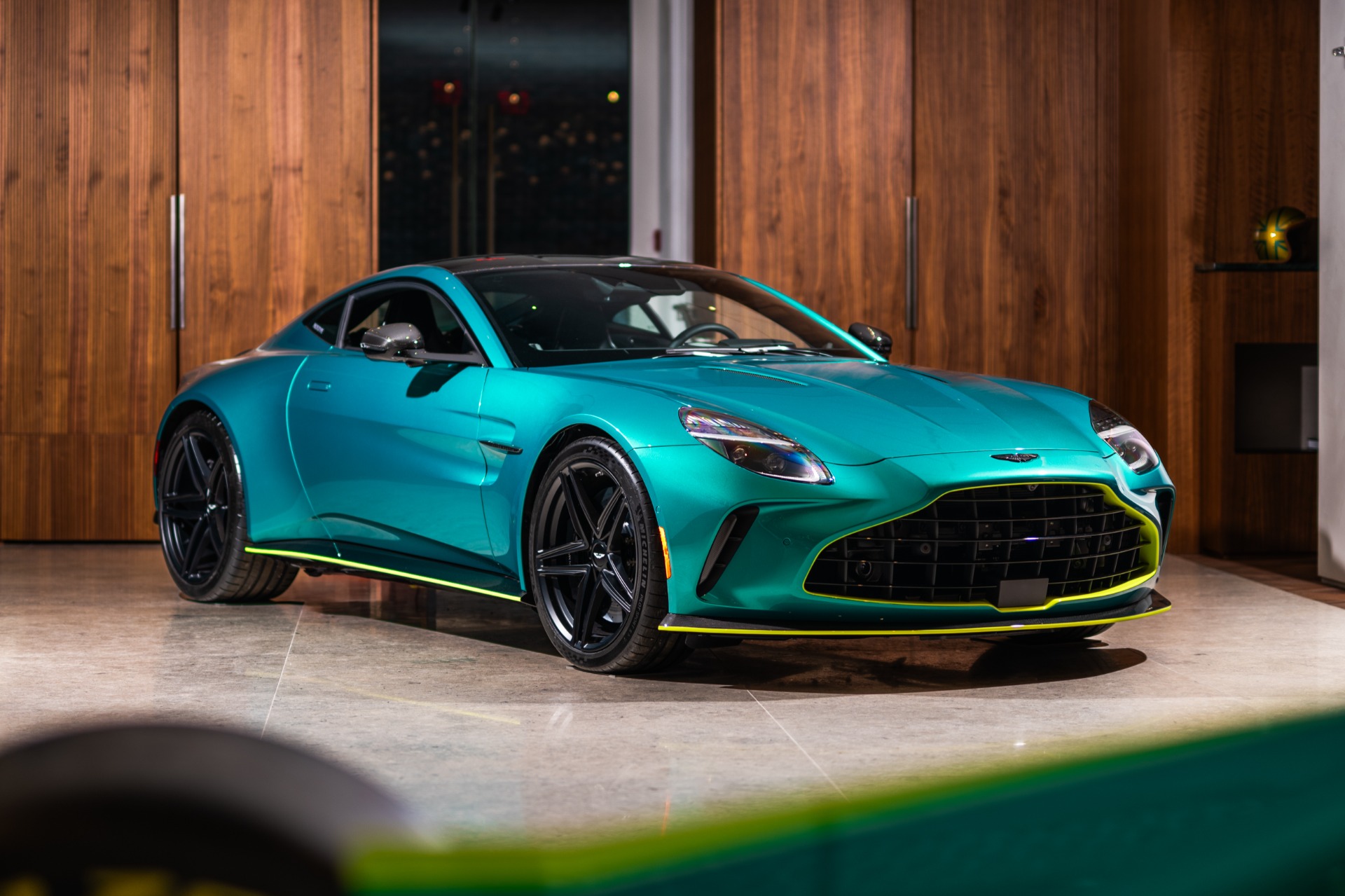
4. Aston Martin Vantage
The Aston Martin Vantage is a beautiful and powerful sports car, but it is not always reliable when it comes to high-speed driving. Powered by a 4.0-liter twin-turbo V8 engine that produces 503 horsepower, the Vantage offers impressive acceleration and handling, but its cooling system and transmission can fail when driven aggressively.
The car’s lightweight construction, which enhances its performance, can sometimes make it vulnerable to component wear during prolonged high-speed runs.
The Vantage’s cooling system, while effective under normal driving conditions, often struggles when the car is pushed to its limits. Overheating is a common issue, particularly in high-performance situations where the engine is taxed for extended periods.
Additionally, the car’s suspension system, while precise, can also struggle to maintain its integrity during extreme driving conditions, leading to potential breakdowns in the drivetrain and suspension.
While the Vantage is a beautiful and capable car, its tendency to suffer from mechanical failures under high-speed driving makes it less reliable than some of its competitors. Owners should be aware of the potential for breakdowns, particularly when pushing the car to its limits.
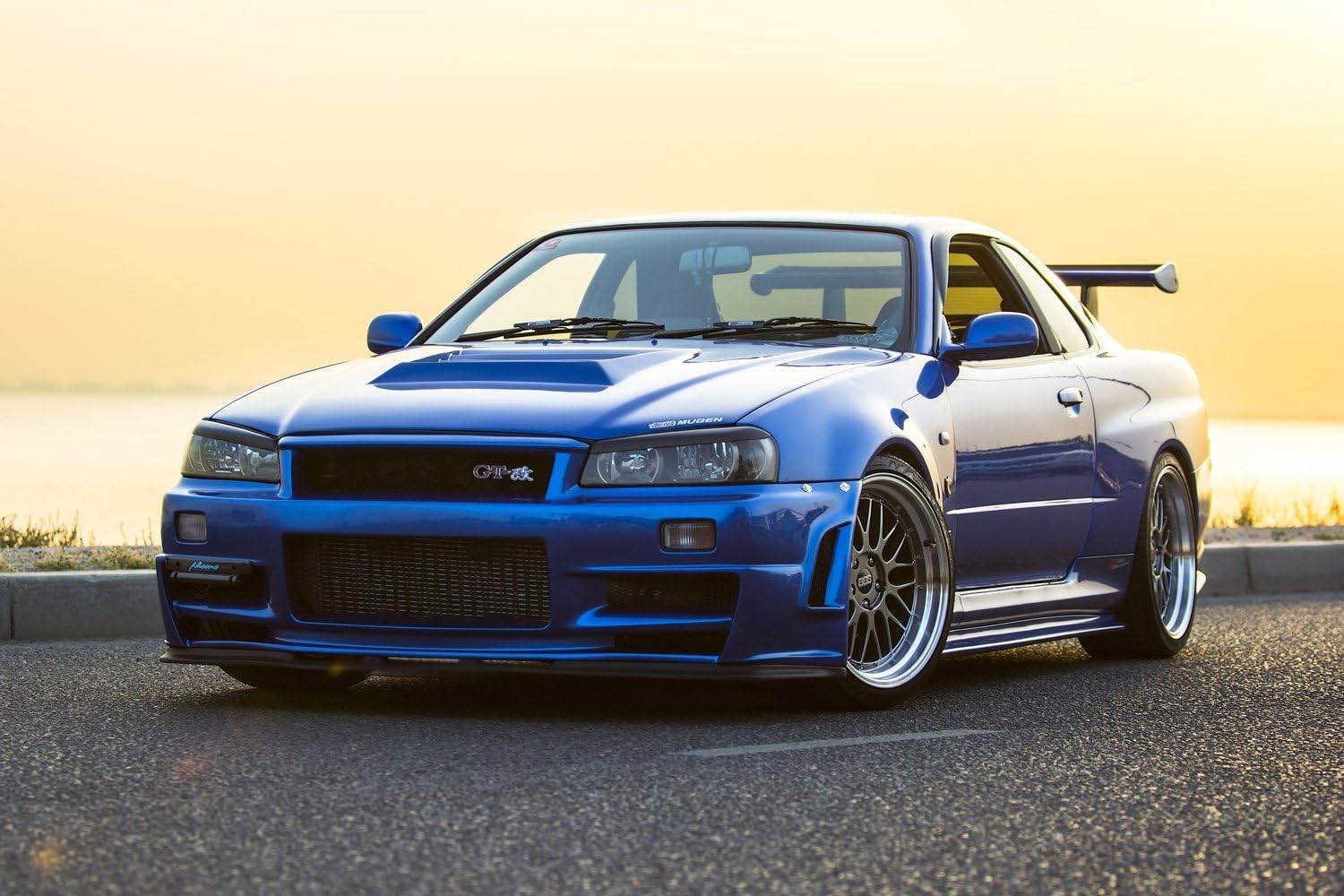
5. Nissan GT-R (R35)
The Nissan GT-R, while a legendary performance car, has its own set of reliability concerns when pushed to the extreme. Powered by a 3.8-liter twin-turbo V6 engine producing 565 horsepower, the GT-R is capable of accelerating from 0 to 60 mph in just 2.9 seconds.
However, its complexity and high-tech systems can lead to breakdowns, especially when the car is subjected to intense driving.
One of the main issues with the GT-R is its dual-clutch transmission, which can overheat and experience performance degradation under aggressive driving.
Additionally, the car’s cooling system, while effective in normal conditions, can struggle to keep up with the heat generated by the engine during extended high-speed runs. This can result in engine overheating and, in some cases, catastrophic engine damage.
Despite its reputation for performance, the Nissan GT-R is not the most reliable car when it comes to sustained high-speed driving.
Owners have reported issues with overheating, transmission failure, and cooling system malfunctions, making it less suitable for those who want a fast car that can withstand long periods of high-speed driving.
Also Read: 10 Vehicles With Best Long-Term Fuel Economy That Save You Money Year After Year
In the world of high-performance cars, speed is often the most alluring feature. However, as we’ve seen, it is not just about how fast a car can go, but how well it can handle the pressures and stresses of extreme driving over time.
While many supercars and sports cars promise mind-blowing acceleration and top speeds, not all of them are built to withstand the wear and tear that comes with pushing them to their limits. Cars like the Toyota Supra MK5, Porsche 911 Turbo S, and Audi R8 V10 Plus stand out not only for their sheer power but also for their impressive reliability.
These vehicles demonstrate that it is possible to have a thrilling driving experience without the constant worry of breakdowns or expensive repairs.
On the other hand, even some of the most iconic performance cars, such as the McLaren 720S, Ferrari 488 GTB, and Lamborghini Huracán Performante, reveal the fragile side of speed. While these cars are engineered to deliver extraordinary performance, they sometimes struggle to maintain their integrity when driven aggressively for extended periods.
This can lead to overheating, transmission issues, and other mechanical failures that not only detract from the driving experience but also result in costly maintenance and repairs. In these cases, the pursuit of speed comes with a price—one that isn’t always paid in performance alone, but also in reliability.
When choosing a fast car, it’s essential to strike a balance between speed, durability, and maintenance costs. Enthusiasts looking for a thrilling driving experience should consider not only how fast a car can go but also how well it can handle the demands of high-speed driving over time.
For those who want a reliable yet exhilarating ride, options like the Toyota Supra, Porsche 911 Turbo S, and Chevrolet Corvette Z06 may be better suited for long-term enjoyment. Meanwhile, drivers who are willing to accept the risks associated with pushing their car to the limits might be drawn to the more temperamental supercars, understanding that their high-performance thrills can sometimes come with the cost of frequent repairs.
No matter what car you choose, the key is to understand the trade-offs and select a vehicle that aligns with your needs and expectations.

